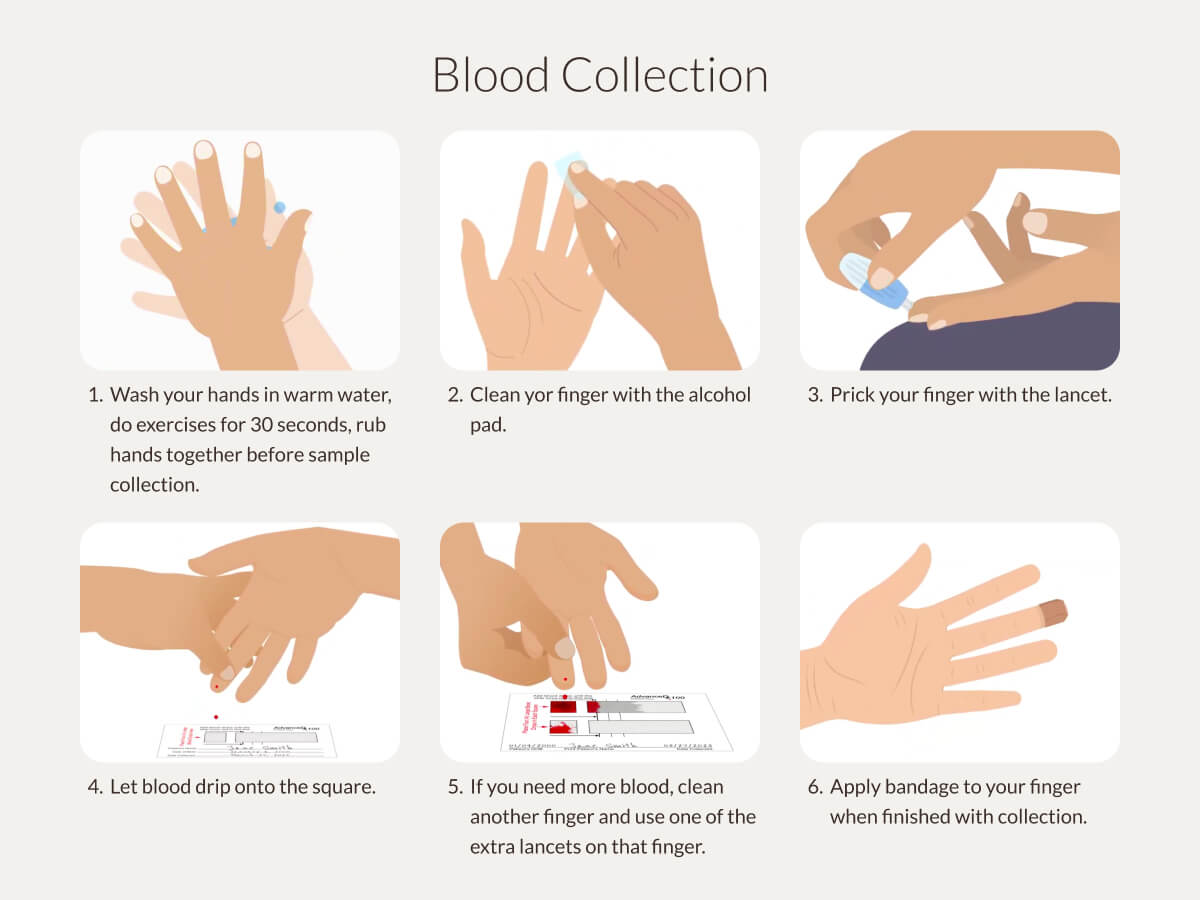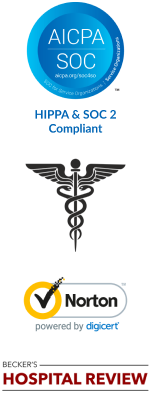Find out what is causing your melasma. This two part test evaluates hormone health, liver health, pituitary function, ovarian reserve and function, metabolic and adrenal health and androgen (testosterone) levels. Telehealth consult with a dermatology-trained root cause melasma expert with personalized nutrition plan and prescriptions as indicated.
-
18 biomarkers measured
-
CLIA-certified and CAP-accredited lab
-
Finger prick sample
-
Fasting
What is measured?
This test measures the following biomarker:
-
Estradiol
Estradiol is the primary form of estrogen produced by the ovaries. It is essential for reproductive health and pregnancy as it is one of the primary sex hormones responsible for ovulation. Estradiol levels drastically decrease after menopause. In addition to helping the brain and reproductive system function at their best, estradiol also affects bone formation, the development of secondary female sex traits, fat distribution, libido, and cardiovascular health.
-
LH
LH levels help women to determine when they ovulate, why they might have trouble getting pregnant, and to help to identify the cause for irregular or no periods, and to diagnose PCOS, and confirm and track menopause or perimenopause. LH levels are also used to measure health of the pituitary gland, to find pituitary tumors, and to enable evaluation of early or late puberty in children.
-
FSH
Follicle-Stimulating Hormone (FSH) is produced by the pituitary gland and plays a crucial role in regulating reproductive processes, such as egg development in the ovaries and sperm production in the testes. FSH is used to evaluate fertility issues, diagnose pituitary gland disorders, and diseases involving the ovaries or testes. It helps determine the cause of irregular or absent menstrual periods in women, assess menopause onset, and investigate delayed or early puberty in children.
-
AMH
AMH is a marker of the number of eggs remaining in the ovaries (ovarian reserve). Higher AMH levels indicate a larger number of eggs and better fertility potential.
-
Prolactin
Prolactin plays an important role in men and in the function of the testicles, the production of testosterone (the main male sex hormone), and in sperm production. Prolactin levels can help to determine the cause of impotence (inability to have an erection during sex), reduced desire for sex, and infertility in males.
-
Insulin
Insulin is important for using and storing glucose, which is a type of sugar that comes from the food we eat and is the body's main energy source. After eating, food is digested and glucose enters into the bloodstream. Insulin helps move glucose out of the bloodstream into the body's cells, especially muscle cells, to make energy. It also tells the liver to change extra glucose into fat and carbohydrates.
-
Cortisol
Cortisol is a hormone produced by the adrenal glands. It is the "stress hormone" with many other functions including, regulating blood sugar levels, reducing inflammation, and controlling blood pressure. Cortisol levels usually peak in the morning and reach their lowest point at night. Measuring cortisol helps monitor and manage adrenal gland issues.
-
Glucose
This checks how much sugar is in your blood after not eating for 8 to 12 hours. It helps find and monitor diabetes and helps you to see how your body handles sugar. High levels can mean you have too much sugar in your bloodstream and may mean you have pre-diabetes or diabetes.
-
A1c
A1C is a blood test that measures your average blood sugar levels over the past two to three months. It works by measuring the percentage of hemoglobin in your red blood cells that has glucose attached to it. A higher A1C level indicates higher average blood sugar and can be a sign of diabetes or poor management in those who already have it.
-
AST
AST is an enzyme that is mainly found in the liver, but is also found in the heart, muscles, and kidneys. When any of these organs is damaged, AST levels rise in the blood. This test enables evaluation of liver function. Elevated AST levels can indicate problems with the liver such as liver disease, infectious hepatitis or toxicity related to medications, alcohol use, or other environmental toxins.
-
ALT
ALT (alanine aminotransferase) is an enzyme primarily found in the liver and in the kidneys, heart, and muscles. It has a role in amino acid metabolism. When elevated, ALT indicates damage to the liver such as hepatitis, cirrhosis, liver cancer, or reaction to medications. Elevated ALT can also indicate damage to other tissues, though it is less common. When ALT levels are higher than AST levels, it can be used to diagnose conditions such as Non-Alcoholic Fatty Liver Disease (NAFLD).
-
Total testosterone (male)
Total testosterone is essential for the growth, development, and function of male reproductive organs. It also helps develop bone density, muscle strength, and fat distribution. The total testosterone test measures both free and protein-bound testosterone.
-
Total testosterone (female)
Total testosterone is a sex hormone present in females in small amounts. It helps with the growth, development, and function of bone density. It also helps develop muscle strength, libido, and fat distribution. The total testosterone test measures the combination of both free and protein-bound testosterone.
-
FAI
A free androgen index (FAI) measures the balance of total testosterone and sex hormone-binding globulin (SHBG) in the blood to estimate free testosterone levels. It's useful for detecting hormone imbalances in men, which can affect sexual function, muscle mass, and overall health. FAI results are used to diagnose and treat conditions related to low or high testosterone, help to manage symptoms and plan appropriate treatments.
-
DHEAS
The DHEAS hormone, primarily produced by the adrenal glands and also by the testes, helps create male sex hormones. It's crucial for body changes during puberty. This test checks adrenal gland function, identifies adrenal problems, and addresses hormone issues like early or late puberty. It helps your provider understand adrenal health and treat hormone-related issues.
-
SHBG
SHBG is a protein made mostly by the liver. It attaches to sex hormones in the blood, like estrogen and testosterone, and helps control how much of these hormones are active in the body. High SHBG levels can lower free testosterone. Abnormal SHBG levels can also indicate hormone problems like hyperthyroidism or low sex hormones. SHBG levels can also reflect liver health, with changes suggesting liver disease or problems.
-
Albumin
Albumin is a protein produced by the liver that helps diagnose liver and kidney disorders. Albumin is an antioxidant and detoxifying protein that prevents fluid loss and transports nutrients and hormones throughout the body.
-
Progesterone
Progesterone levels are used to help confirm ovulation, abnormal uterine bleeding, or menstrual problems. It is used to monitor early pregnancy. It can also help look into fertility issues including diagnosing luteal phase deficiency.
Who should take this test?
Women age 18+ who:
- Struggle with melasma
- Want to eliminate unwanted skin pigmentation
- Want to address the root causes of melasma
- Want to understand your overall hormone health, liver health, adrenal response to stress, check for insulin resistance, ovarian and pituitary function
How to test?
Before you begin:
- Take the Part 1 test on day three of your period (if you are menstruating) and the Part 2 test on day 21.
- If you are not menstruating, take the part 1 test any time and the part 2 test 18 days later.
- When you wake up, drink 12oz. of water and collect your blood sample 1 hour later.
- You must be fasting for this test, so don't eat anything the morning before the test.
- Avoid smoking for 1 full hour before collecting your blood sample.
- Wash your hands with soap in warm water, and then rub them together.
- Do some light exercise, like jumping jacks, to increase blood circulation.
Register your test ID online and collect your sample:
Scan the QR code inside your kit and follow the instructions to collect your sample.
After collection:
- Let your sample dry completely on card (2 hours).
- Mail test box the same day using the prepaid label. If you take your test on Sunday, mail it in first thing on Monday.
Pre-Testing Video
Pre-Testing Video
What is in the box?

What to expect?
- Prepaid shipping label and packaging for an easy return to the lab
- All the necessary materials for sample collection
- Live 24/7/365 proctoring to guide you through the sample collection process
- Easy-to-follow video directions to help you along the way
- Digital (and printable) results found in the AZOVA app
The HEALTHBOX™
Root Cause Melasma Bundle
Root Cause Melasma Bundle
2-5 days
Couldn't load pickup availability











How it works
-
1
Identify

Take the Melasma Root Cause Test Part 1 and Part 2.
-
2
Reveal

When your results are ready, complete your melasma health assessment. Get an online consultation with a melasma expert and personalized report.
-
3
Renew

Get your customized nutrition plan and prescription skin care regimen to address the root cause of your melasma.
Frequently asked questions
Are AZOVA tests covered by FSA/HSA?
- Use your AZOVA test order confirmation to submit for FSA/HSA reimbursement.
- As defined by the IRS, many FSA/HSA benefits coordinators consider AZOVA tests to be qualified medical expenses.
- However, some FSA/HSA benefits coordinators might deny reimbursement. Before purchasing, please consider checking with your benefits coordinator to see if your FSA/HSA covers AZOVA products.
What if I have questions about this test or my results?
For questions about your test or results, contact AZOVA Customer Support at 844-692-9682, available 24/7.
For a more in-depth discussion of your results with a healthcare provider, AZOVA's Virtual Care is available at azova.com for an additional cost.
In which states can I purchase this test?
Tests are available for individuals 18 years and older and require a blood sample. Availability of tests may vary by state. Visit azova.com/states for more information. This test is only intended for informational and educational use, and is not intended to be used for diagnostic purposes.
Purchase, registration, and use are subject to the AZOVA User Agreement available at azova.com/patient-terms.
Information presented here is not intended to diagnose or treat any condition and is provided for educational purposes only. Always consult with your healthcare provider before making any healthcare decisions.
If you are having a life threatening emergency, please call 911 immediately.


Talk with Customer Support
You can call AZOVA’s Customer Support team for comprehensive support, including help with your account, testing, results and telemedicine visits.
Please note that wait times may vary depending on call volume.
(844) 692–9682














